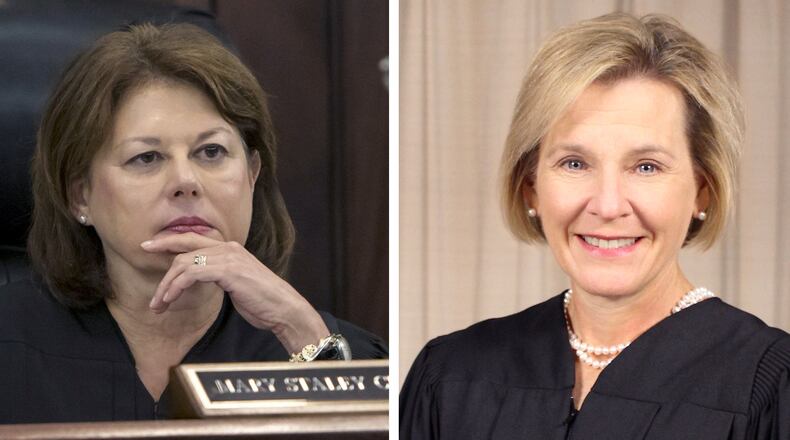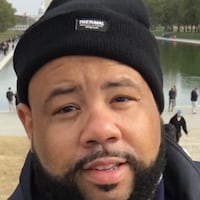Cobb County Superior Court’s drug and mental health courts have two new presiding judges.
Judge Mary Staley Clark took over the bench for Drug Treatment Court, while Judge Ann B. Harris was tapped to lead the Mental Health Court.
Chief Judge Robert D. Leonard announced the new appointments Wednesday. Both women will be presiding over “accountability courts,” pre-trial intervention programs designed to treat underlying issues with offenders arrested mostly for non-violent crimes.
The drug and mental health programs are two of the four accountability courts in Cobb’s Superior Court system. The judicial circuit also has Veterans and Parental accountability courts.
Harris has presided over the award-winning parental court since she was elected in 2014. That program focuses on turning child-support scofflaws into financially supportive parents.
She will now do double duty as judge of the circuit’s mental health court, established in 2013. It is a voluntary treatment-based program that aims to reduce repeat offenses by addressing offenders’ long-term mental health.
“Both of these programs, like other Accountability Court programs, strive to address participants’ barriers — whether mental health, substance abuse, or lack of job skills and education — which have hindered their ability to be stable, successful, law-abiding members of their families and the larger community,” Harris said in a statement. “These programs may not change the world, but they are certainly changing one person’s world.”
Staley Clark was the first presiding judge over the mental health court and handled those cases until her recent appointment to drug court. She has been a Superior Court judge since 1992 and served as the chief judge between 2005 and 2006.
Staley Clark has presided over high-profile cases such as the 2016 murder trial of Justin Ross Harris, who was convicted of killing his 22-month-old son by leaving the boy locked inside a hot SUV in 2014. Staley Clark sentenced Ross Harris to life in prison without the possibility of parole.
Drug court is a rigorous two-year program designed to get non-violent felony offenders sober. More than 500 drug court graduates have had their criminal charges dismissed since the program began in 2002. There are currently 59 active participants in the program.
“From my experience, most families are touched by addiction and mental illness,” Staley Clark said. “Drug courts give drug-using people who have come in contact with the criminal justice system a chance to secure sobriety, learn social skills such as honesty, work adherence, education and noncriminal thinking as well as reconnect with healthy family and friends.”
About the Author
Keep Reading
The Latest
Featured




